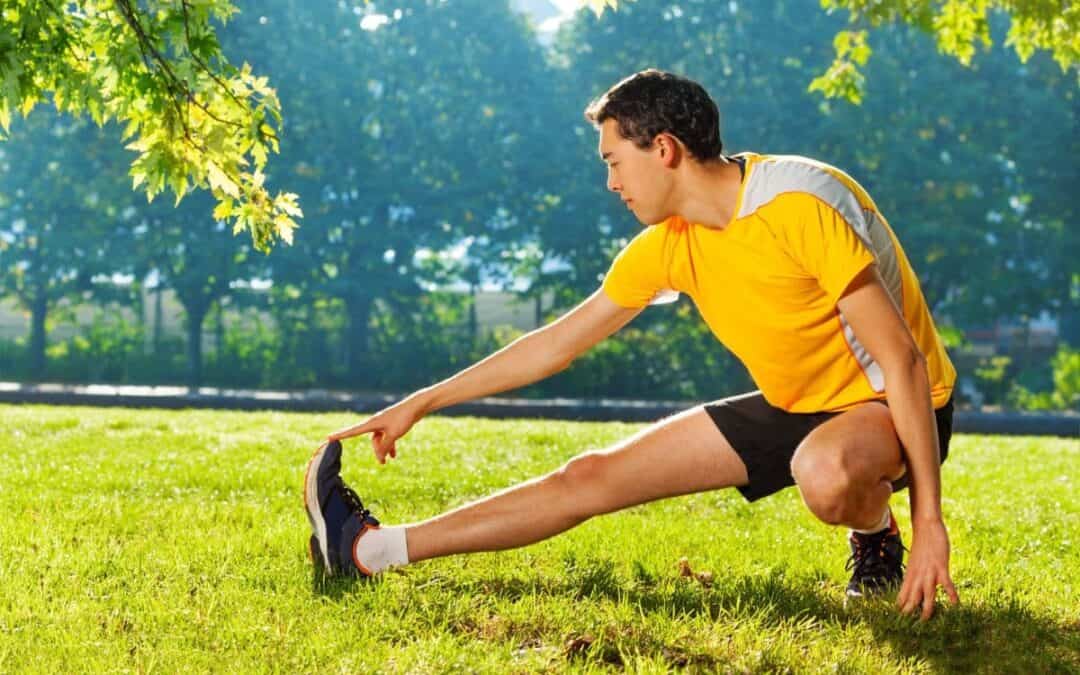Exercise, for some people, is a daily routine. While going about this, the body needs proper rest and diet to recover well from the muscle expansion that happens during the process. But, the question is: does recovery time determine whether or not you are fit?
Quick recovery from exercise is not the only factor that shows fitness. Other factors such as body composition, flexibility, cardiorespiratory fitness, and muscular strength, in addition to a quick recovery, all contribute to determining fitness.
So, if you are beginning to question your fitness level because it takes you a few more days than required to get back after exercising, do not be overly worried. This article discusses how your body recovers from exercise and why faster recuperation means fitness. You will also learn about how to improve recovery time.
Table of Contents
How Fitness Depends on a Quick Recovery Time
If you exercise regularly, you overload the muscles. This leads to several muscular changes and expansions. During this period, your body reacts to these changes, which is why you may feel sharp pains after exercising.
However, your body heals and adapts to this training after a period of rest, coupled with a proper diet. But, the comeback time depends on the load exerted on the muscles. For instance, weight lifting requires more recovery time than push-ups.
Nonetheless, physical fitness depends on two vital factors – recovery and adaptation. In other words, you can be fit if your body adapts and recovers quickly from exercising.
While adaptation and recovery are primary factors for fitness, proper recovery is essential for the body to adapt to training.
To help you better understand the relationship between fitness and recovery time, we will discuss the process of recovery and the phases of adaptation in the body below.
How Does the Body Recover From Exercise?
Generally, people know to rest after exercising. This enables the body to recover and avoid burnout. While this is a general concept for recovery, what exactly happens during this process?
The body recovers from exercise during the period of rest through a combination of synthesis and biochemical processes. These include:
- Repair of muscle fiber.
- Synthesis of protein.
- Replenishment of lost fluids.
Two main concepts are relevant to our understanding of recovery. They are homeostasis and stress. We’ll explain them below to give us a better picture.
- Homeostasis: As seen in the National Library of Medicine, homeostasis is the “self-regulating process by which biological systems maintain stability while adjusting to changing external conditions.”
- Stress: This is the body’s reaction to feeling threatened or under pressure.
As you exercise, the body tries to adjust to the changing conditions of your muscular system and maintain stability (homeostasis). However, these changing conditions put the body under pressure and force it to react (stress).

There are several types of stress. They include psychological, emotional, chemical, environmental, physiological, etc. However, the primary stress experienced during exercise is chemical and physiological stress.
Physiological stress relates to pressure directly on our body, like pain, muscle tears, and dehydration. Chemical stress refers to chemical imbalances in the blood, like acid-base imbalance.
When the body faces pressure (stress), it responds in two ways. It either overcomes it or breaks down.
The body tries to remove hydrogen and lactate from the muscles while signaling protein and stimulating blood circulation to overcome stress. This process brings about proper recovery. Some activities that help to facilitate this process include massage, compression, hydrotherapy, cryotherapy, and sleep.
Phases of Adaptation in the Body
Adaptation occurs when the body completely adjusts to a new load (pressure), and this comes from intense physiological stress coupled with proper recovery that further leads to homeostasis.
Adaptation varies from person to person. However, it will take 4 to 6 months to adapt to the new load.
The three phases of adaptation include:
- Phase 1: This takes place within the first few weeks. At this point, the muscular systems are experiencing a new pressure, and start complaining. This results in the sour and painful sensations you feel when you just start exercising.
- Phase 2: This occurs within 1 to 4 months. At this point, your body begins to adjust to the exercises.
- Phase 3: In about 4 to 6 months, coupled with consistent training, you fully adapt to the new conditions and regain homeostasis. However, a change in this routine disrupts the balance.
The Verdict: Quick Recovery Leads to Adaptation and Fitness
Fitness is the ability to do activities with optimal performance, strength, and endurance while managing stress, diseases, and fatigue. Recovery, on the other hand, is the ability to overcome pressure (stress).
So, we can say that the ability to overcome pressure faster means better stress management, leading to improved performance (fitness). In other words, the faster the recovery, the better the stress tolerance and the optimal the performance.

Tips To Improve Recovery After Exercising
There are several ways to reduce the pain you feel after working out. Below are a few of them.
- Get enough rest. A good night’s sleep helps to relax your muscles and repair worn-out tissues. In addition, testosterone and growth homes responsible for performance increase while you sleep. Getting at least eight hours every night helps to improve recovery.
- Consume nutritious meals. Avoid eating spicy foods, chocolate, soda, or fast foods. While recovering, try eating foods that contain plenty of protein like milk, egg, and yogurt because they help your muscles heal faster. Also, consume some carbohydrates.
- Drink more water. Water helps to move oxygen and nutrients to your blood cells. It also helps regulate your temperature and normalize your blood pressure. So, it is vital to always hydrate after a day’s workout. The minimum amount of water you should take in after working out is 8 ounces (237 ml).
- Massage. Having a massage helps to free up muscles and increases your blood flow. While an increase in blood flow can improve recovery speed, it also helps to reduce fatigue and weakness.
Conclusion
Your fitness does not only depend on a quick recovery. A faster recovery means that your body is in good shape and can quickly overcome the pressure.
Try sticking to a regular exercise routine, avoid regularly changing your exercise plan, and ensure that you confirm with a fitness trainer before any significant change in your workout plan.

